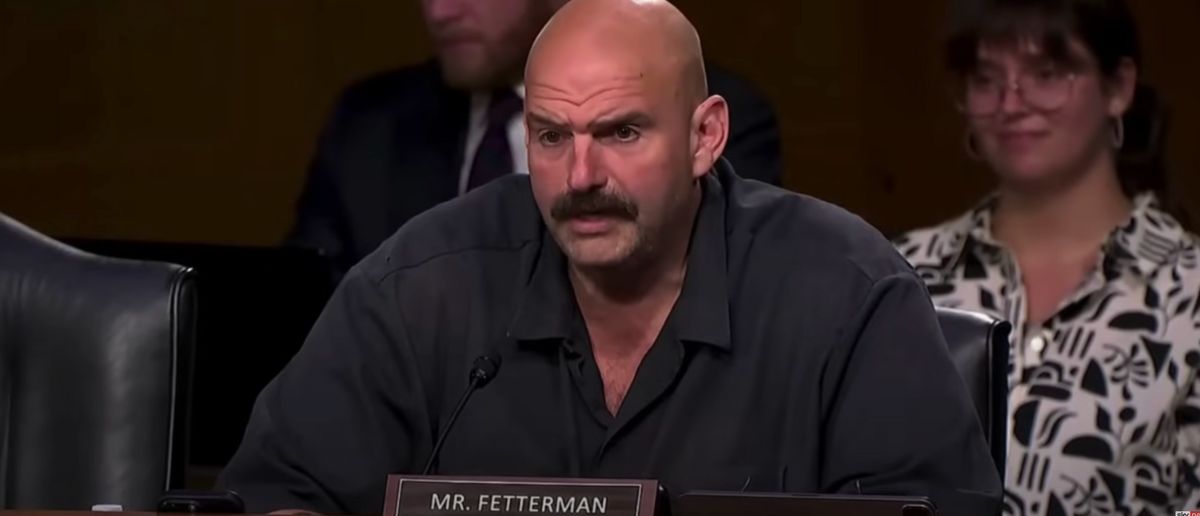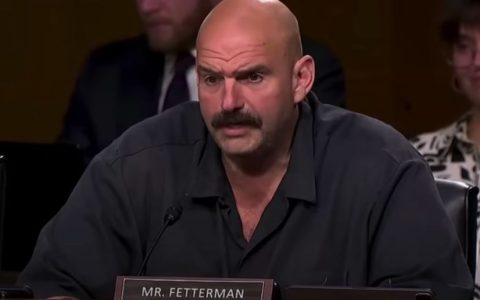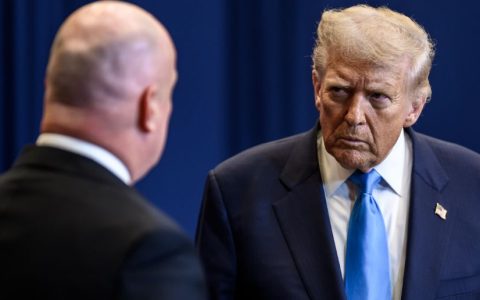
Congress has been scheming in the shadows. But the White House is getting one step ahead.
As President Trump walloped Congress with a threat that’s stunned all of Washington, D.C.
White House Holding Veto Power Over The Heads Of Congress
President Donald Trump is once again proving he’s a force to be reckoned with, issuing a stern veto threat on Monday morning against a bipartisan Senate resolution aimed at dismantling the emergency powers fueling his bold global tariff strategy. The White House is digging in, signaling that Trump will not back down from his mission to reshape America’s trade landscape and protect its economic interests.
The Senate is gearing up for a vote as early as this week on a resolution to revoke Trump’s national emergency declaration, which serves as the backbone for his sweeping tariffs on imported goods. The White House Office of Management and Budget (OMB) made it crystal clear in a statement obtained exclusively by the Daily Caller News Foundation that the president is ready to wield his veto pen if the resolution reaches his desk. This move emphasizes Trump’s unwavering commitment to his America-first agenda.
“There can be no doubt that S.J. Res. 49 — if passed — would undermine U.S. national and economic security,” the White House Office of Management and Budget (OMB) wrote. “If S.J. Res. 49 were presented to the President, he would veto it.” The administration’s stance is a direct challenge to lawmakers who seek to limit Trump’s authority, framing the tariffs as essential to safeguarding the nation’s economic future.
Leading the charge against Trump’s tariff powers are Democratic Oregon Senator Ron Wyden and Republican Kentucky Senator Rand Paul, who are co-sponsoring the effort to strip away the emergency declaration. Congress holds the authority to force a vote on terminating such presidential powers, requiring only a simple majority in both chambers. However, Trump’s resolve and the loyalty of many in his party make this an uphill battle for the resolution’s supporters.
On April 2, Trump declared a national emergency to address what he sees as unfair trade practices, particularly “the large and persistent annual U.S. goods trade deficit.” His administration has repeatedly pointed to trade imbalances as a threat to America’s industrial strength, arguing that they erode wages and expose supply chains to vulnerabilities. This declaration laid the groundwork for tariffs designed to level the playing field for American workers and businesses.
“President Trump refuses to let the United States be taken advantage of and believes that tariffs are necessary to ensure fair trade, protect American workers, and reduce the trade deficit — this is an emergency,” a White House fact sheet stated, emphasizing the president’s “Liberation Day” tariffs. The language reflects Trump’s conviction that bold action is needed to restore America’s economic dominance, a message that resonates with his base.
Trump once again confirms the plan for tariffs, is to substantially reduce or completely eliminate income tax for everyone making less than $200k per year.
Trump is trying to save the American People from our current state, which is indentured servitude, a.k.a. slavery. pic.twitter.com/UfDzoD4NT1
— Clandestine (@WarClandestine) April 27, 2025
Trump announced a 90-day pause on most country-specific reciprocal tariffs on April 9, excluding China, after more than 75 countries expressed interest in negotiating trade deals. This pause demonstrates Trump’s deal-making prowess, offering a window for nations to come to the table while keeping pressure on global competitors. The administration is actively working to secure agreements that prioritize American interests.
Despite these efforts, Senator Wyden remains determined to push forward, telling Politico on April 10 that he will force a vote to eliminate Trump’s emergency declaration. His persistence, alongside Paul’s libertarian-leaning objections, highlights a rare bipartisan effort to check the president’s power. Yet, the White House argues that such a move would jeopardize ongoing negotiations and weaken America’s position on the global stage.
“The President is now in active negotiations with many of these countries to eliminate barriers to U.S. exports,” OMB said. “Disturbing the conditions underlying these negotiations would signal to U.S. trading partners that they can continue to discriminate against U.S. exports with impunity.” The administration’s warning suggests that curbing Trump’s authority could embolden foreign nations to exploit American markets.
Progress on trade talks is already showing promise. Treasury Secretary Scott Bessent noted on Thursday that negotiations with South Korea “may be moving faster” than anticipated. Meanwhile, Vice President JD Vance celebrated advancements in a potential trade deal with India during a visit to the country on Tuesday. These developments bolster Trump’s argument that his tariff strategy is driving tangible results.
Senator Paul, a vocal critic of the tariffs, has framed his opposition as a defense of constitutional principles. “Tariffs are taxes, and the power to tax belongs to Congress — not the president,” Paul said in an April 8 statement. “Our Founders were clear: tax policy should never rest in the hands of one person. Abusing emergency powers to impose blanket tariffs not only drives up costs for American families but also tramples on the Constitution. It’s time Congress reasserts its authority and restores the balance of power.” Paul’s stance appeals to those wary of executive overreach, but it puts him at odds with Trump’s supporters.
Trump, never one to shy away from calling out dissenters, took aim at GOP lawmakers challenging his trade policies during remarks at the National Republican Congressional Committee’s annual president’s dinner on April 8. “And then I’ll see some rebel Republican, you know, some guy that wants to grandstand say, ‘I think that Congress should take over negotiations,'” Trump said. “Let me tell you, you don’t negotiate like I negotiate. If Congress takes over negotiating, sell America fast because you’re going to go bust.” His blunt words reinforce his reputation as a master negotiator who trusts his instincts over bureaucratic processes.
Paul also co-sponsored a separate resolution with Virginia Senator Tim Kaine to block Trump’s emergency declaration justifying tariffs on Canada, which passed the Senate 51 to 48 on April 2, with three Republicans joining Paul in support. However, House Speaker Mike Johnson refused to bring the measure to a vote, effectively halting its progress. This precedent suggests that the Wyden-Paul resolution faces similar obstacles in the House.
The Wyden-Paul resolution’s path to Trump’s desk remains uncertain, as House Republicans have taken steps to delay a vote. On April 9, they inserted language into a procedural rule for Trump’s budget blueprint, preventing a vote on the resolution until September 30. This maneuver reflects the strong support Trump enjoys among House GOP leaders, who see his tariff strategy as a cornerstone of his economic vision.
Trump’s tariff policies have sparked heated debate, but his supporters view them as a necessary antidote to decades of trade deals that favored foreign interests over American workers. By leveraging emergency powers, Trump is taking decisive action to reassert America’s economic sovereignty. Whether the Senate’s resolution gains traction or fizzles out, one thing is clear: Trump is ready to fight to protect his vision for a stronger, more prosperous America.
Stay tuned to the DC Daily Journal.





